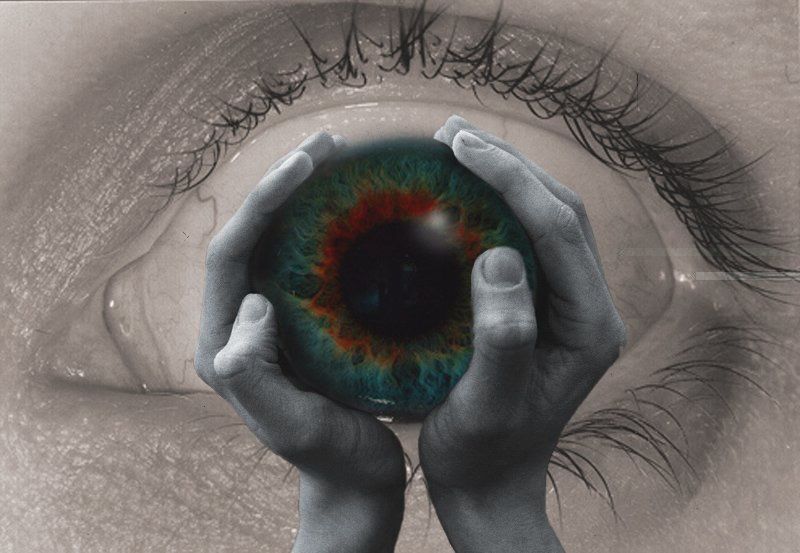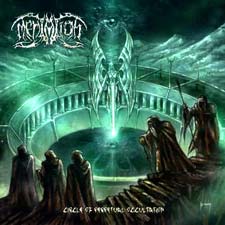Negerblues
Negerblues
Zijn er liefhebbers van lekker rauwe, gouwe ouwe negerblues? Denk aan Howlin Wolf, BB King, John Lee Hooker, Muddy Waters, Albert Collins, Robert Cray (niet zo oud als de rest maar wel gaaf) Buddy Guy (zelfde verhaal), enzovoort enzovoort. Is deze muziek nog weleens te vinden in de cdspelers van MF'ers?
[img]http://home.wanadoo.nl/federicogs/manowar/manowar.gif[/img]
Pitten op Priest is gay.
BESTAAT NIET MEER.
Pitten op Priest is gay.
BESTAAT NIET MEER.
- consumerwhore
- Berichten: 180
- Lid geworden op: do jan 06, 2005 9:49 pm
- Locatie: Antwerpen
- Metal_heart
- Berichten: 1435
- Lid geworden op: ma nov 15, 2004 9:15 pm
- Metal_heart
- Berichten: 1435
- Lid geworden op: ma nov 15, 2004 9:15 pm
- Metal_heart
- Berichten: 1435
- Lid geworden op: ma nov 15, 2004 9:15 pm
- Daisycutter
- Berichten: 4809
- Lid geworden op: di sep 30, 2003 8:17 pm
- Locatie: Avenhorn
- Oblivion
- Berichten: 4832
- Lid geworden op: za feb 14, 2004 12:55 pm
- Locatie: Arnhem; samen met je moeder
- Contacteer:
Johnny Winter is blank maar speelt perfect gespeelde blues, erg mooi!!yowannuzz schreef:Neger blues?
Is er dan ook blanke blues?
Blues is muziek van negers.Toen blanken het probeerden na te spelen is de rock ontstaan.
Rock is eigenlijk gewoon slecht gespeelde blues.
"Poep, Zweet en Tranen"
[quote="Fear_Of_The_Dark"]Hij heb een beetje een roggelstem, vind ik eigenlijk wel lache[/quote]
[quote="Fear_Of_The_Dark"]Hij heb een beetje een roggelstem, vind ik eigenlijk wel lache[/quote]
- Motörheadbanger1988
- Berichten: 163
- Lid geworden op: vr jan 07, 2005 12:33 am
- Locatie: Landgraaf
- Sargatanas
- Berichten: 5257
- Lid geworden op: wo sep 29, 2004 4:26 pm
- Locatie: Groningen
- the true Thorko
- Berichten: 13291
- Lid geworden op: vr mar 05, 2004 12:48 am
- Locatie: l'Hermitage
- toffe_ellende
- Berichten: 3363
- Lid geworden op: vr mei 23, 2003 1:06 pm
- Locatie: Landgraaf-Tilburg-Davos
Ik denk dat we zo'n beetje alle moderne muziek op dance na te danken hebben aan een of meerdere zwarte mensendako schreef:Negers kunnen veel dingen niet goed.
Hardlopen en bleus maken behoren niet tot dat rijtje.
Ga maar na: Blues, Jazz, Hiphop en rap, Rhytym & Blues, R&B, Rock n Roll, Hard Rock (gedeeltelijk door Hendrix), dan heb je de meest belangrijke hoofdstromingen wel gehad. Alleen moderne dancemuziek (Kraftwerk, Eno) zijn zeker niet gevonden door zwarten.
[img]http://www.hanenwurger.org/wp-content/themes/default/images/hanenwurger.jpg[/img][url=http://www.hanenwurger.org]HANENWURGER![/url]
Sterker nog:toffe_ellende schreef:[..]
Ik denk dat we zo'n beetje alle moderne muziek op dance na te danken hebben aan een of meerdere zwarte mensen
Ga maar na: Blues, Jazz, Hiphop en rap, Rhytym & Blues, R&B, Rock n Roll, Hard Rock (gedeeltelijk door Hendrix), dan heb je de meest belangrijke hoofdstromingen wel gehad.
We hebben ritmiek te danken aan negers. Voor de inmenging van zwarte muziek (door slaven) was muziek hoofdzakelijk melodisch (denk aan bijvoorbeeld klassiek) en niet ritmisch georiënteerd.
Dit is ook niet geheel waar.toffe_ellende schreef:Alleen moderne dancemuziek (Kraftwerk, Eno) zijn zeker niet gevonden door zwarten.
Alleen techno (via Kraftwerk inderdaad) heeft geen negroïde achtergrond. Dance stromingen die afstammen van disco of ragga (en dat is het meerendeel van de hedendaagse dancegenres, denk aan DnB, Trance en zelf gabber) hebben wel een zwarte geschiedenis.
[img]http://imagegen.last.fm/3blackrows/recenttracks/Emmaneul.gif[/img]
- the true Thorko
- Berichten: 13291
- Lid geworden op: vr mar 05, 2004 12:48 am
- Locatie: l'Hermitage
Wat lul je nou? Zij zijn die muziek gaan maken omdat wij, de blanke, Arische heersers van deze wereld, hen op die plantages tewerk hebben gesteld... zij hebben de blues dus aan ons te danken!Rascul schreef:Blues, altijd goed. Ik vind het zo ultiem grappig dat er zoveel NSBM-blekkies rondlopen die hun muziekstijl verafgoden, terwijl de voorvaders van die muziek oude negers met hoedjes en sigaren waren.
Bow bow bow bow, yeeh yeeh yeeh yeeh
I'm not sick... I'm evil!
Metalfans parttime geweten... en fulltime bemoeial.
Metalfans parttime geweten... en fulltime bemoeial.
the true Thorko schreef:[..]
Wat lul je nou? Zij zijn die muziek gaan maken omdat wij, de blanke, Arische heersers van deze wereld, hen op die plantages tewerk hebben gesteld... zij hebben de blues dus aan ons te danken!
volgens mij waren blanken in het begin niet zo blij met hun blues.
edit: ze waren zeker niet blij met zwarte muziek. Als de blanken het de kop in hadden kunnen drukken hadden ze het gedaan.
Laatst gewijzigd door Emmaneul op di feb 22, 2005 3:21 pm, 3 keer totaal gewijzigd.
[img]http://imagegen.last.fm/3blackrows/recenttracks/Emmaneul.gif[/img]
- the true Thorko
- Berichten: 13291
- Lid geworden op: vr mar 05, 2004 12:48 am
- Locatie: l'Hermitage
- toffe_ellende
- Berichten: 3363
- Lid geworden op: vr mei 23, 2003 1:06 pm
- Locatie: Landgraaf-Tilburg-Davos
Ja je hebt gelijk, ik was er nog een paar vergeten zie ik.Emmaneul schreef:[..]
Dit is ook niet geheel waar.
Alleen techno (via Kraftwerk inderdaad) heeft geen negroïde achtergrond. Dance stromingen die afstammen van disco of ragga (en dat is het meerendeel van de hedendaagse dancegenres, denk aan DnB, Trance en zelf gabber) hebben wel een zwarte geschiedenis.
[img]http://www.hanenwurger.org/wp-content/themes/default/images/hanenwurger.jpg[/img][url=http://www.hanenwurger.org]HANENWURGER![/url]
- Sandr
- Berichten: 17926
- Lid geworden op: ma jan 21, 2002 5:21 pm
- Locatie: Ootmarsum/Wageningen
- Contacteer:
metal is in meer of mindere mate ook wel door klassieke en folk muziek beïnvloed, al ligt de basis idd bij 'zwarte' muziektoffe_ellende schreef:[..]
Ik denk dat we zo'n beetje alle moderne muziek op dance na te danken hebben aan een of meerdere zwarte mensen
Ga maar na: Blues, Jazz, Hiphop en rap, Rhytym & Blues, R&B, Rock n Roll, Hard Rock (gedeeltelijk door Hendrix), dan heb je de meest belangrijke hoofdstromingen wel gehad. Alleen moderne dancemuziek (Kraftwerk, Eno) zijn zeker niet gevonden door zwarten.
'Tuez-les tous, Dieu reconnaîtra les siens'
[img]http://lastfm.obsessive-media.de/weekly/5x1/Sandr616.jpeg[/img]
[img]http://lastfm.obsessive-media.de/weekly/5x1/Sandr616.jpeg[/img]
Ik denk dat metal vooral voortkomt uit rock en dus uit blues en dat er pas later mengvormen zijn onstaan met andere muziekstijlen zoals b.v. folk en klassiek,maar ook b.v. funk/hip-hop(nu-metal) en punk(hardcore etc.)Sandr schreef:[..]
metal is in meer of mindere mate ook wel door klassieke en folk muziek beïnvloed, al ligt de basis idd bij 'zwarte' muziek
Took schreef:Yowannuzz is heel lief hoor. niks engs aan.
Klopt. in Ahoy. Ter ere van zijn 80ste verjaardag. Als er nog kaartjers zijn moet ik die snel eens gaan halen. Met papa uiteraard, als je dan toch naar negermuziek gaat, kan je net zo goed als een neger de profiteur uithangen.Placenta schreef:Ja zeker oude blues heerst.Vooral Muddy Waters.I am a mannish boy.Schijtn dat BB king weer naar nerderland komt
Howlin' Wolf is briljant inderdaad, eens een docu over hem gezien, prachtige stem heeft die gast!
[img]http://home.wanadoo.nl/federicogs/manowar/manowar.gif[/img]
Pitten op Priest is gay.
BESTAAT NIET MEER.
Pitten op Priest is gay.
BESTAAT NIET MEER.
Met Negerblues doel ik echt op die oude lp's, met 'witte blues' doel ik persoonlijk meer op bluesrock, niet dat dat alleen door blanken gespeelt wordt.yowannuzz schreef:Neger blues?
Is er dan ook blanke blues?
Blues is muziek van negers.Toen blanken het probeerden na te spelen is de rock ontstaan.
Rock is eigenlijk gewoon slecht gespeelde blues.
[img]http://home.wanadoo.nl/federicogs/manowar/manowar.gif[/img]
Pitten op Priest is gay.
BESTAAT NIET MEER.
Pitten op Priest is gay.
BESTAAT NIET MEER.
- the true Thorko
- Berichten: 13291
- Lid geworden op: vr mar 05, 2004 12:48 am
- Locatie: l'Hermitage
-
FrisianFreedom
- Berichten: 311
- Lid geworden op: wo sep 15, 2004 10:18 am
- Contacteer:
Celtic roots of blues:
from Jimmy Cantrell piece, "Celtic Divide: The Culture of the Confederacy" located here: http://patriotist.com/jcarch/jc20020311.htm
There is little evidence for any African musical influence on the South. That is not the same as claiming that blacks have not made significant contributions to some Southern popular or folk music forms. The contributions made by blacks simply are not pure African; rather, they are clearly mixes of African with white and AmerIndian. Even the banjo, long paraded as the apex of proof that blacks determined virtually all of Southern folk music, is not necessarily an African or New World black instrument. Just as we have a few accounts of black Africans playing a stringed instrument made from a gourd, usually in areas where earlier Arabic/Berber presence had introduced Semitic and north African Caucasian cultural ways [both groups with long histories of string instruments prominent in their folk music,] we also have accounts of a few AmerIndians in the 16th century doing the same. In addition, we know from Medieval Celtic literature of several stringed instruments that no longer exist, and the specifics of the banjo, perfect for folk music from Scotland and Ireland, may have been refined, though not invented, for precisely that purpose. Beyond that, the simple fact is that both black African and AmerIndian folk music were percussion based, not string based. The main contribution of each to Southern music naturally would be found there, and as most people know, most white Southern folk music forms made use of no percussion save slapping the fingers across the thighs or, in what is clearly a reworking of Celtic dance once the ties with the strictest traditions were lost through emigration, with the feet. To claim that tap is African is absurd; it, like clogging, is a Southern version of the various Celtic dance styles that emphasized the rhythmic taps of the toes of the shoes. It is next to impossible to imagine a Riverdance springing from any black African or black American folk community; it is easy to see how Riverdance presents the more refined, 'classical' old country version of clogging.
Black influence on Southern song and lyric forms is also greatly overemphasized. There is a story told about John McCormack, the early 20th century Irish tenor, hearing black blues for the first time. He is reported to have remarked that he knew that type of music, meaning folk songs with an emphasis on sorrow and trials, from Ireland; the significant difference to him was that the Irish 'blues' were less simplistic musically and more complex lyrically. The black blues is some form of 'da-duh da-duh Dah Dah' repeated endlessly. The lyrics also typically repeat the same few lines ['Yes, my baby done left me/ Said my baby done left me/ She done left me all alone/ Run to get some that white bone'.] Its artistry lies in its pure emotion, its simple evocation of feelings. Of course, that is also the initial claim made for the value of Southern mountain music, which is almost always more complex both musically and lyrically than the black blues. People who were raised with a folk music in which songs like 'Barbara Allen' were commonplace are unlikely to find in the considerably more simplistic black blues any great influence, even in terms of singing about terrible events and emotional scars that seem not to abate. The folk music of Ireland and Scotland feature tens of thousands of songs that relate everything from nationalistic risings to love of nature to murders of unfaithful spouses to suffering from foreign political leaders and landlords who hate Celtic peoples and culture to religious consolation.
The first time we see significant black influence on Southern white popular music is in the beginning of the rock 'n' roll era, when increasing numbers of whites had been removed from traditional local cultures and that musical heritage. The result was a music that is far from predominantly black, as is asserted everywhere; it is a mixture of black rhythm and blues, country balladry and harmony, honky-tonk snarl and twang, bluegrass energy and pace, and pure old gooshy pop. It is therefore primarily white in cultural origin. The physical, rhythmic, and verbal expressions of unbridled sexuality are the principal black contributions.
Again, I must emphasize that the chief reason so many people have fallen for the notion that Southern folk music is based greatly on black music is because of that century and a half tendency to ascribe to African origin anything in the South that cannot be proven to be English in cultural origin. Had late 19th-century folklore collectors not found 'Barbara Allen' sung by the rural folk in the northern English counties that border Scotland, instead finding the song only in Scotland and Ireland, you can bet that there would be reams of people today swearing that 'Barbara Allen' is a song that proves how most white Southern culture is little more than what whites stole from blacks and got away with because of racism.
Again, the Celtic-Southern thesis is necessary to refuting such nonsense.
It is true that ragtime and jazz are preponderantly black musical forms [the indispensable white contributions to jazz, particularly its development, are increasingly denied, for academic-cultural 'Affirmative Action' reasons.] It is also true that they are forms that could not be described as African in any way. Each is impossible without instruments and earlier musical forms developed and perfected by whites; each requires nothing specifically African, save perhaps for certain types of jazz that make extensive use of the African focus on percussion.
Another area in which black music greatly influenced the whole of America is in terms of morality. Both ragtime and jazz were initially associated with brothels and opium dens, and by the 1920s jazz was the music of the new era of recreational drugs and sexual experimentation. As various lovers of jazz have emphasized, much of the 'best' of jazz, especially that written and performed by blacks, is bound up with sexual experimentation and/or drug use, especially with attempting to express musically what the drug experience is. As jazz set up homes in most large northern cities and jazz bands toured the country, jazz, more than even Hollywood, brought the drug culture to Main Street America.
In addition, it seems inescapable that black folksongs are the principle source of mainstreaming vulgarity into popular culture. Though the Scots-Irish ballads treat various terrible events, they do so with a controlled language. There is virtually no profanity, the violence is rarely detailed, and sexual matters are discretely mentioned. Black blues, on the other hand, always featured profanity and fairly graphic descriptions of both violence and sexual practices. Especially as that pattern of increasingly vulgar language is also found in black 'word games' such as 'the dozens' and 'the signifying monkey,' it is safe to say that 'gangsta rap' is nothing new and is a pure representation of African-American culture. In fact, there are academics today, including whites, who make that case and then affirm that it is therefore racist to oppose black expression that features vulgar language replete with graphic descriptions of violent and sexual acts, exhortations to violence, and endless profanities.
from Jimmy Cantrell piece, "Celtic Divide: The Culture of the Confederacy" located here: http://patriotist.com/jcarch/jc20020311.htm
There is little evidence for any African musical influence on the South. That is not the same as claiming that blacks have not made significant contributions to some Southern popular or folk music forms. The contributions made by blacks simply are not pure African; rather, they are clearly mixes of African with white and AmerIndian. Even the banjo, long paraded as the apex of proof that blacks determined virtually all of Southern folk music, is not necessarily an African or New World black instrument. Just as we have a few accounts of black Africans playing a stringed instrument made from a gourd, usually in areas where earlier Arabic/Berber presence had introduced Semitic and north African Caucasian cultural ways [both groups with long histories of string instruments prominent in their folk music,] we also have accounts of a few AmerIndians in the 16th century doing the same. In addition, we know from Medieval Celtic literature of several stringed instruments that no longer exist, and the specifics of the banjo, perfect for folk music from Scotland and Ireland, may have been refined, though not invented, for precisely that purpose. Beyond that, the simple fact is that both black African and AmerIndian folk music were percussion based, not string based. The main contribution of each to Southern music naturally would be found there, and as most people know, most white Southern folk music forms made use of no percussion save slapping the fingers across the thighs or, in what is clearly a reworking of Celtic dance once the ties with the strictest traditions were lost through emigration, with the feet. To claim that tap is African is absurd; it, like clogging, is a Southern version of the various Celtic dance styles that emphasized the rhythmic taps of the toes of the shoes. It is next to impossible to imagine a Riverdance springing from any black African or black American folk community; it is easy to see how Riverdance presents the more refined, 'classical' old country version of clogging.
Black influence on Southern song and lyric forms is also greatly overemphasized. There is a story told about John McCormack, the early 20th century Irish tenor, hearing black blues for the first time. He is reported to have remarked that he knew that type of music, meaning folk songs with an emphasis on sorrow and trials, from Ireland; the significant difference to him was that the Irish 'blues' were less simplistic musically and more complex lyrically. The black blues is some form of 'da-duh da-duh Dah Dah' repeated endlessly. The lyrics also typically repeat the same few lines ['Yes, my baby done left me/ Said my baby done left me/ She done left me all alone/ Run to get some that white bone'.] Its artistry lies in its pure emotion, its simple evocation of feelings. Of course, that is also the initial claim made for the value of Southern mountain music, which is almost always more complex both musically and lyrically than the black blues. People who were raised with a folk music in which songs like 'Barbara Allen' were commonplace are unlikely to find in the considerably more simplistic black blues any great influence, even in terms of singing about terrible events and emotional scars that seem not to abate. The folk music of Ireland and Scotland feature tens of thousands of songs that relate everything from nationalistic risings to love of nature to murders of unfaithful spouses to suffering from foreign political leaders and landlords who hate Celtic peoples and culture to religious consolation.
The first time we see significant black influence on Southern white popular music is in the beginning of the rock 'n' roll era, when increasing numbers of whites had been removed from traditional local cultures and that musical heritage. The result was a music that is far from predominantly black, as is asserted everywhere; it is a mixture of black rhythm and blues, country balladry and harmony, honky-tonk snarl and twang, bluegrass energy and pace, and pure old gooshy pop. It is therefore primarily white in cultural origin. The physical, rhythmic, and verbal expressions of unbridled sexuality are the principal black contributions.
Again, I must emphasize that the chief reason so many people have fallen for the notion that Southern folk music is based greatly on black music is because of that century and a half tendency to ascribe to African origin anything in the South that cannot be proven to be English in cultural origin. Had late 19th-century folklore collectors not found 'Barbara Allen' sung by the rural folk in the northern English counties that border Scotland, instead finding the song only in Scotland and Ireland, you can bet that there would be reams of people today swearing that 'Barbara Allen' is a song that proves how most white Southern culture is little more than what whites stole from blacks and got away with because of racism.
Again, the Celtic-Southern thesis is necessary to refuting such nonsense.
It is true that ragtime and jazz are preponderantly black musical forms [the indispensable white contributions to jazz, particularly its development, are increasingly denied, for academic-cultural 'Affirmative Action' reasons.] It is also true that they are forms that could not be described as African in any way. Each is impossible without instruments and earlier musical forms developed and perfected by whites; each requires nothing specifically African, save perhaps for certain types of jazz that make extensive use of the African focus on percussion.
Another area in which black music greatly influenced the whole of America is in terms of morality. Both ragtime and jazz were initially associated with brothels and opium dens, and by the 1920s jazz was the music of the new era of recreational drugs and sexual experimentation. As various lovers of jazz have emphasized, much of the 'best' of jazz, especially that written and performed by blacks, is bound up with sexual experimentation and/or drug use, especially with attempting to express musically what the drug experience is. As jazz set up homes in most large northern cities and jazz bands toured the country, jazz, more than even Hollywood, brought the drug culture to Main Street America.
In addition, it seems inescapable that black folksongs are the principle source of mainstreaming vulgarity into popular culture. Though the Scots-Irish ballads treat various terrible events, they do so with a controlled language. There is virtually no profanity, the violence is rarely detailed, and sexual matters are discretely mentioned. Black blues, on the other hand, always featured profanity and fairly graphic descriptions of both violence and sexual practices. Especially as that pattern of increasingly vulgar language is also found in black 'word games' such as 'the dozens' and 'the signifying monkey,' it is safe to say that 'gangsta rap' is nothing new and is a pure representation of African-American culture. In fact, there are academics today, including whites, who make that case and then affirm that it is therefore racist to oppose black expression that features vulgar language replete with graphic descriptions of violent and sexual acts, exhortations to violence, and endless profanities.
[img]http://www.corrupt.org/transcendence/forum/yabbfiles/Templates/Forum/default/transcendence.jpg[/img]
[b][url=http://WWW.CORRUPT.ORG]CORRUPT.ORG[/url][/b]
[b][url=http://www.anus.com]AMERICAN NIHILIST UNDERGROUND SOCIETY[/url][/b]
[b][url=http://WWW.CORRUPT.ORG]CORRUPT.ORG[/url][/b]
[b][url=http://www.anus.com]AMERICAN NIHILIST UNDERGROUND SOCIETY[/url][/b]
- Daisycutter
- Berichten: 4809
- Lid geworden op: di sep 30, 2003 8:17 pm
- Locatie: Avenhorn
- Korefuji
- Grote boze forum moddereter
- Berichten: 5881
- Lid geworden op: za jul 27, 2002 12:39 pm
- Locatie: Bij Haarlem
xeper schreef:[..]
Klopt. in Ahoy. Ter ere van zijn 80ste verjaardag. Als er nog kaartjers zijn moet ik die snel eens gaan halen. Met papa uiteraard, als je dan toch naar negermuziek gaat, kan je net zo goed als een neger de profiteur uithangen.
Howlin' Wolf is briljant inderdaad, eens een docu over hem gezien, prachtige stem heeft die gast!
Ja....B.B. King moet ik ook zeker zien.....heb al J.L. Hooker toen moeten missen, jaar daarop was ie dood...bah!
Maar goed....eghm, andere aanraders binnen de blues zijn Gary Moore, Joe Bonamassa, Robert Johnson, Buddy Guy, Albert King, Otis Rush....nu ja...ik kan nog wel een eind doorgaan....
The secret of life is honesty and fair dealing..if you can fake that, you've got it made.
Politics is the art of looking for trouble, finding it, misdiagnosing it and then misapplying the wrong remedies.
- Groucho Marx
Politics is the art of looking for trouble, finding it, misdiagnosing it and then misapplying the wrong remedies.
- Groucho Marx
- the true Thorko
- Berichten: 13291
- Lid geworden op: vr mar 05, 2004 12:48 am
- Locatie: l'Hermitage
- the true Thorko
- Berichten: 13291
- Lid geworden op: vr mar 05, 2004 12:48 am
- Locatie: l'Hermitage
-
MetalTuupLimburg
- Berichten: 4856
- Lid geworden op: ma feb 10, 2003 11:24 pm
- Locatie: Wijlre
- Contacteer:
-
1337_misanthrope
- Berichten: 47
- Lid geworden op: ma mar 21, 2005 7:35 am
- Contacteer:
Popa Chubby, geen neger, wel een hele goeie gitarist (en hij ziet er (een klein beetje)uit als een metalhead, hehehe)
http://awj.free.fr/Photos/Musique/2002/ ... -(550).jpg
http://awj.free.fr/Photos/Musique/2002/ ... -(550).jpg
Peter Pan Syndroom is goed hoor!























